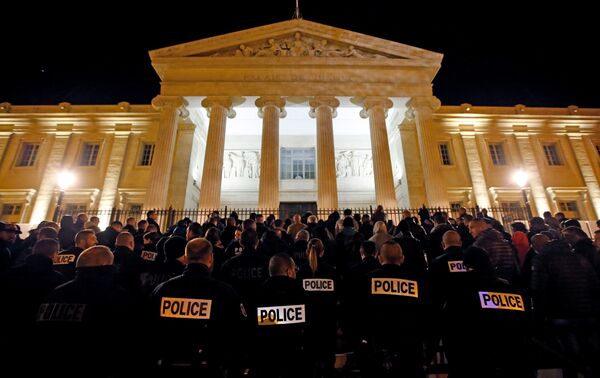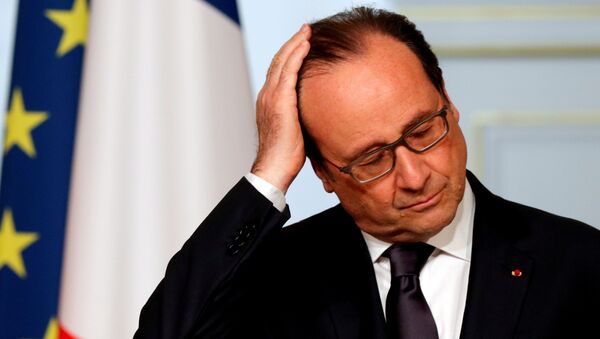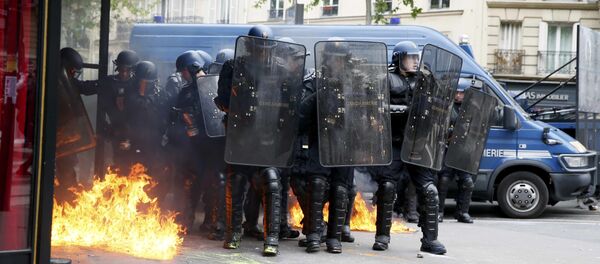French police have been staging unilateral protests in cities all over France, including Paris, Marseilles, Bordeaux, Nancy and Toulouse, over attacks on them as they enforce the state of emergency following recent terror attacks.
The law enforcers are angry over the lack of resources they have — following years of job losses and budget cuts — to step up security in the wake of the Paris terror attacks of January and November 2015, the Nice lorry attack on Bastille Day, July 2016 and a litany of other terror-related incidents in France.
Hollande introduced a state of emergency, giving police extra powers of search and arrest. However, after years of lack of resources, many small neighborhoods in towns and cities across France have become no-go zones, which the police have — over the years — become estranged from.
#France's police stage protests for 5 nights in a row, applauded by Parisians in a revival of 'Charlie Hebdo' spirit https://t.co/nqBLsB5BP0 pic.twitter.com/xy5M72JopQ
— ST Foreign Desk (@STForeignDesk) October 23, 2016
In an effort to counter radicalization, police are being ordered into these areas, where they have encountered violent attacks, culminating in an officer being seriously injured in a Molotov cocktail attack in Viry-Chatillon, a notoriously crime-ridden commune in the southern suburbs of Paris on October 8. Others were injured and are still receiving treatment.
On November 16, 2015 — just three days after the Paris attacks that killed 130 and injured hundreds — Hollande announced a series of emergency powers, including extensive powers of search and powers to break-up public meetings. He gained credit for his response to the terror attack — just as he had done following the Charlie Hebdo and related attacks in January 2015.

However, he drew criticism when he pushed for a change to the constitution to allow for terrorists to be stripped of their French nationality. Although the move gained popular support on the right, both his Socialist Party and students — as well as civil rights groups — claimed the move would leave people "stateless."
He drew further criticism when he extended the state of emergency, which includes giving the police powers to break up groups of people, which many in France feel goes against the principles of "Liberte, egalite, fraternite."
Exhaustion
The police have come in for more fire for their action in enforcing the law over demonstrations against Hollande's controversial reforms to the French labor laws — known the code de travail — which have proved deeply unpopular with unions and student who have taken to the streets for months in violent protest, which has put them at loggerheads with the police.
The police are calling for more staff, more resources and for tougher sentencing for those who attack officers.
Meanwhile, unions say the police have clocked up millions of hours in overtime in countering the terror threat, which has left many exhausted.




